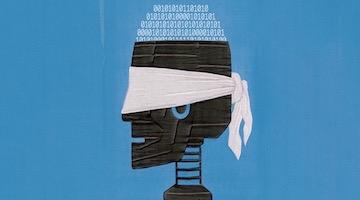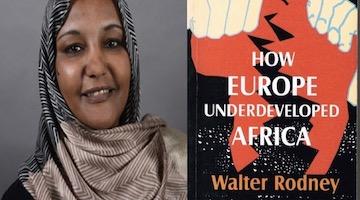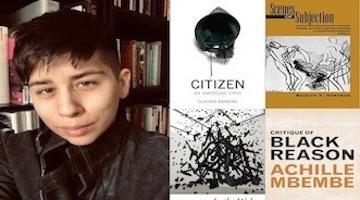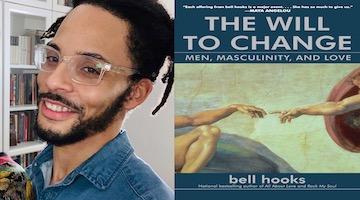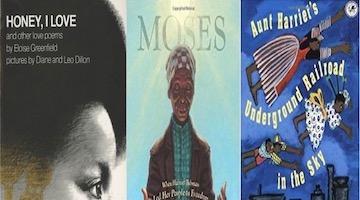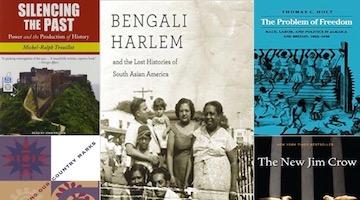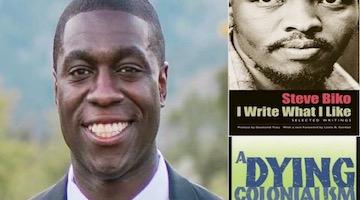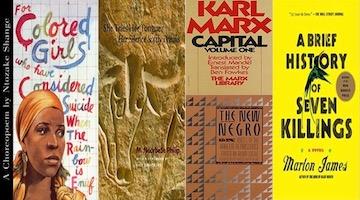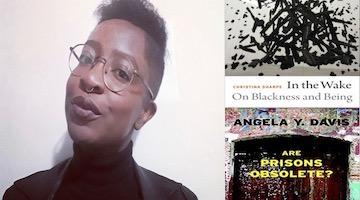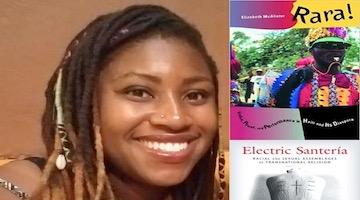Most people contribute to injustice not as direct perpetrators but as indirect participants who enable, perpetuate, benefit from, and inherit histories of violence and contemporary systems of exploitation.
“Solidarity does not require identification or similarity, but can emerge from understanding our different locations.”
In this series, we ask acclaimed authors to answer five questions about their book. This week’s featured author is Michael Rothberg. Rothberg is Professor of English and Comparative Literature and 1939 Society Samuel Goetz Chair in Holocaust Studies at the University of California, Los Angeles. His book is The Implicated Subject: Beyond Victims and Perpetrators.
Roberto Sirvent: How can your book help BAR readers understand the current political and social climate?
Michael Rothberg: Nobody could have predicted the dramatic events of the last year—either the pandemic or the mass demonstrations and uprising that followed from the murder of George Floyd, not to mention the way the 2020 election played out. Yet, at the same time, many of the underlying issues are familiar ones that we’ve been confronting for years and in some cases decades or more: police violence, ecological devastation, structural racism and inequality, and the rise of White Nationalism and conspiracy theories. The Implicated Subject does not provide “answers” to all of those problems, but it does try to provide a framework for thinking in new ways about histories of violence and injustice and structures of inequality.
My work comes out of Holocaust studies and in that field the three key categories that people use to talk about violence are victims, perpetrators, and bystanders. My starting point in the book was to remark that this vocabulary is inadequate for confronting many of the problems that concern us—including the ones I mentioned above. I do not suggest that we stop talking about victims and perpetrators, who are obviously part of any discussion of violence and injustice, but I think the category of the bystander in particular is weak and unhelpful. What I call the “implicated subject” can be seen as a replacement for the bystander. While the concept of the bystander implies passivity and disengagement, I want to highlight how most people contribute to injustice not as direct perpetrators but as indirect participants who enable, perpetuate, benefit from, and inherit histories of violence and contemporary systems of exploitation. Those indirect participants are what I call implicated subjects.
I know that’s relatively abstract, so let me give a couple of examples. While slavery in the United States formally ended in the nineteenth century, White people remain implicated in what Saidiya Hartman and others call the “afterlife of slavery.” That is to say, we continue to benefit from it by virtue of our whiteness. Similarly, the dispossession of Indigenous people with the founding and expansion of the US is not something anybody alive today directly participated in; yet, by virtue of living in a settler colony, we not only benefit from that dispossession, we also actively perpetuate it. Being what I call a “perpetuator”—which also applies to other settler colonial situations—does not mean we are “guilty” of colonization, but it does mean we are responsible and that we are implicated. The next step is to try to figure out what kinds of restitution and repair follow from such implication.
What do you hope activists and community organizers will take away from reading your book?
My hope is that the overarching framework I provide can be useful, not just for academics and intellectuals but also for people (including academics and intellectuals) engaged in activism and community organizing. I believe it helps to have a nuanced understanding of how histories of violence unfold, how systems of domination are structured, and how both histories and systems propagate themselves in the present. For me, implicated subjects play essential roles in all of those things—so, for example, we need to pay attention not just to the most visible police officers and vigilantes who shoot African Americans and other people of color on what seems like a daily basis, but also to the larger White community whose paranoia and “fear” feeds that system of violence and helps keep it in place.
Beyond the overarching framework that the book offers, there are a couple of specific concepts that I think might be useful for activist practice. I draw on the Black feminist theory of intersectionality to emphasize how we are all multiply situated in society—marked by gender, race, class, sexuality, etc. While Black feminists have used that insight to theorize what the Combahee River Collective (CRC) called the “interlocking systems of domination” that determine the lives of Black women in particular, I realized that the theory of intersectionality also helped explain why we have implicated subjects. For instance, as the CRC understood, Black women had to engage with Black men in the struggle against racism, though Black men were also implicated in patriarchy. Inversely, White women might be part of the struggle against patriarchy, but they were also implicated in structural racism. When people have lines of connection both to victimization and structures of domination I call this “complex implication.” My hunch is that this widespread phenomenon of complex implication plays a critical role in a lot of struggles.
Speaking personally, I think of Israel/Palestine, where Jewish people’s complex implication plays an important, but not always clear role: as Jewish people, we have historical links to the Holocaust as well as ongoing antisemitism, but are simultaneously implicated in the oppression of another people and bear responsibility (also as Americans) to dispossessed Palestinians. We cannot make complex implication go away, but it seems to me that being aware of the complicated way that people are situated in relation to power and violence can be an essential element in the forging of alliances.
The other concept I want to mention follows from that: differentiated solidarity. All activist movements require solidarity, but solidarity has to be created across lines of difference and across inequalities, as the CRC also understood. “Differentiated solidarity” means the ability to recognize differences in history, experience, and social positioning, while still working together for a common cause. Solidarity does not require identification or similarity, in other words, but can emerge from understanding our different locations.
We know readers will learn a lot from your book, but what do you hope readers will un-learn? In other words, is there a particular ideology you’re hoping to dismantle?
This is a great question—there is a lot to unlearn. As is probably clear by now, my notions of implication and implicated subjects are meant to apply broadly in many different contexts, but they are most useful when used to confront particular histories and contexts. Although my book is not meant as an “autobiography,” it is in some ways written to address issues that seem very personal—as I mentioned above with respect to Israel/Palestine. I think for those of us who occupy positions of privilege and who benefit from structures of inequality one of the most important things to unlearn is innocence. Implication is in some ways the opposite of innocence. You may think you are detached and distant from histories of implication because you are not guilty of actively perpetrating racist violence, but in my framework the opposite of guilt is not necessarily innocence—in certain circumstances, it is rather implication and political responsibility.
Recognizing our implication in place of our innocence also entails “unlearning” the kinds of affective and emotional responses that arise when we are called out for our involvement in structures of violence and inequality. We need to figure out ways of countering resentment and defensiveness, which for me are signs of the disavowal of implication. The question of how you move from these negative affects that accompany implication to affects that can enable solidarity and activism—among those who are relatively privileged—is for me a crucial theoretical and political question. It’s something I’ve been thinking about since finishing the book. We need to be able to move from unlearning innocence to learning new kinds of solidarity in the face of implication
Who are the intellectual heroes that inspire your work?
I’ve already mentioned the Combahee River Collective—their vision of the complexity of social relations that needs to be acknowledged in any analysis and political mobilization has been key to me since I reread their statement in recent years (thanks in part to the great edition put out by Keeanga-Yamahtta Taylor). W.E.B. Du Bois has also been a central figure for me: a short essay he wrote in 1952 called “The Negro and the Warsaw Ghetto” was the inspiration for my thinking about “differentiated solidarity” as well as what I call “multidirectional memory.” In that essay, he reports on a visit he made to Poland in 1949 during which he witnessed the ruins of the Warsaw Ghetto, which the Nazis had destroyed after the Warsaw Ghetto Uprising. Seeing the absolute destruction wrought by the Nazis inspired him, he writes, to rethink his understanding of race—to realize both the specificity of genocidal antisemitism and its relation to the anti-Blackness he knew so well. This vision of relationality—which I also find in a thinker like Paul Gilroy—is inspiring to me and seems more essential than ever in the face of the far-right violence we’ve seen in recent years.
In addition to those thinkers from the Black tradition, I’m also inspired by a number of post-Holocaust thinkers and writers. In his essay “The Gray Zone,” Primo Levi offers a vision of social complexity that is related to the one you find in the CRC (though addressing a very different situation). The Auschwitz survivor and memoirist Charlotte Delbo—who was not Jewish, but rather a political prisoner—is also one of my heroes: her devastating testimony about the camps and the way she also intervened in other political crises, like the Algerian War of Independence, continues to shape my thinking. Hannah Arendt’s writings on collective responsibility were also critical to me in The Implicated Subject, even though in my previous book Multidirectional Memory I also wrote about her implication in colonial forms of race-thinking. Heroes are important, but I think it’s also important to offer critical accounts of thinkers—even the ones who inspire us.
In what way does your book help us imagine new worlds?
Imagining new worlds is essential, but I’m also influenced by the Frankfurt School philosopher Theodor W. Adorno, who emphasized how difficult it is to conceive of utopia from within a fallen world. One of his most famous comments is: “Wrong life cannot be lived rightly.” I’m not usually that pessimistic or defeatist, but I think his perspective has to be taken seriously.
In the conclusion of the book I call for the “transfiguration” of implication. By that I mean that we must first acknowledge the breadth and depth of implication in which many of us find ourselves (the “wrong life” in which we live), and then work—together with others—to transform the world that feeds off of implication and produces ongoing forms of political violence and exploitation. We may not be able to live “rightly,” but if we don’t live better there is going to be no life to live at all. That’s one of the lessons of the climate catastrophe in which we are all implicated. Especially those of us in the over-developed world need to think about what we can do to confront the ecological crisis—a crisis obviously tied up with the dynamics of global capitalism. I suppose the lesson is that to construct new worlds we need new planetary forms of solidarity—what I call “long-distance solidarity.” And that long-distance solidarity needs to acknowledge the way we are also differently situated in relation to the problems of our day.
Roberto Sirvent is editor of the Black Agenda Report Book Forum.
COMMENTS?
Please join the conversation on Black Agenda Report's Facebook page at http://facebook.com/blackagendareport
Or, you can comment by emailing us at comments@blackagendareport.com

